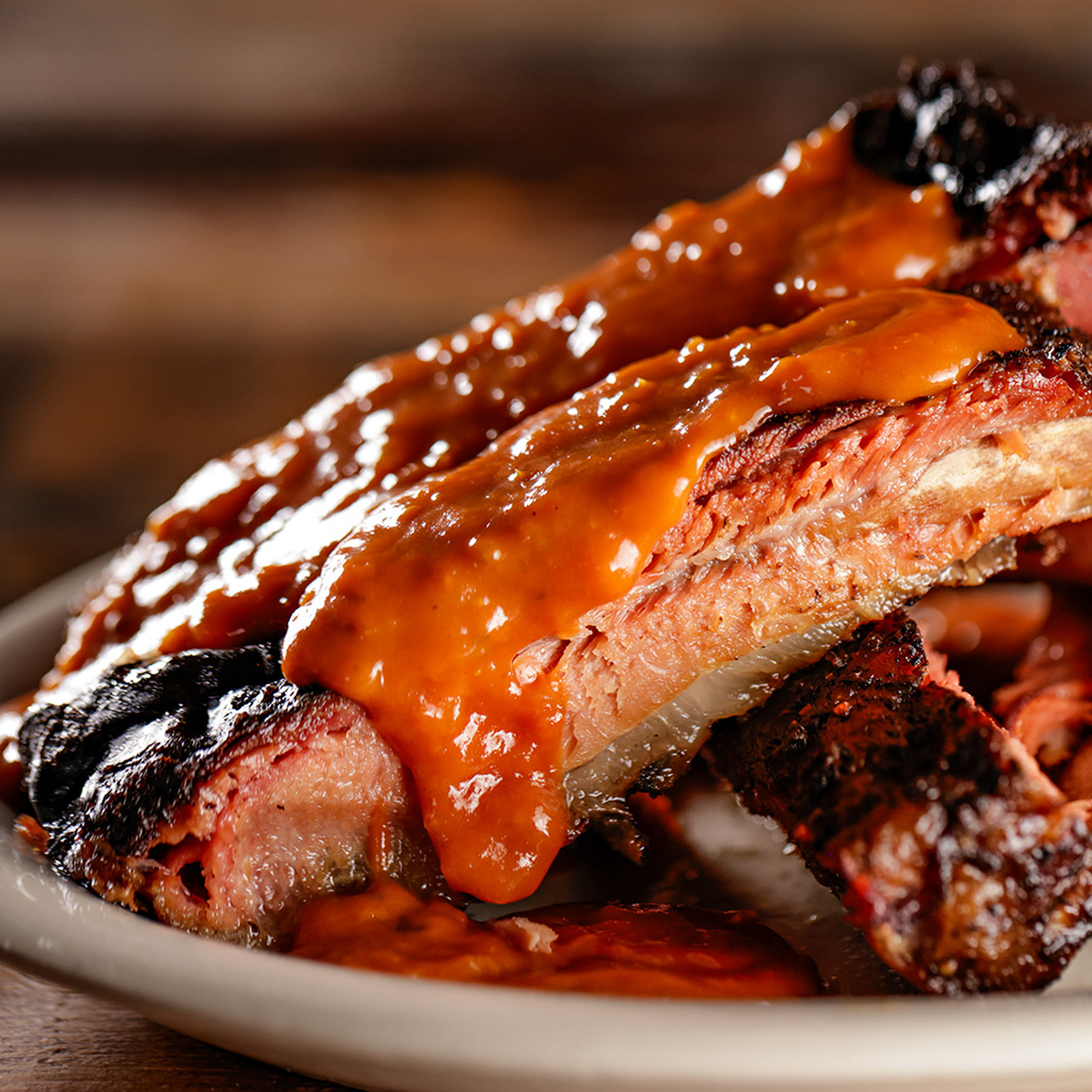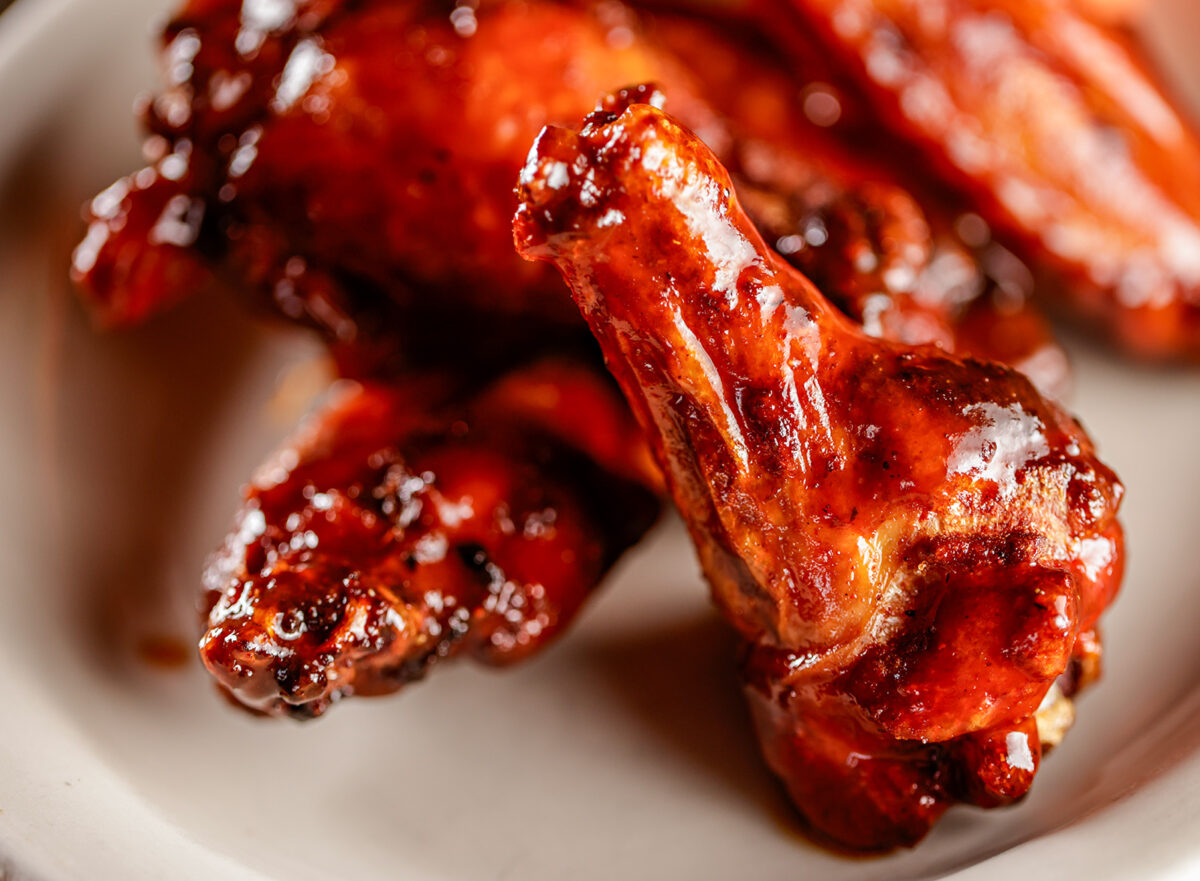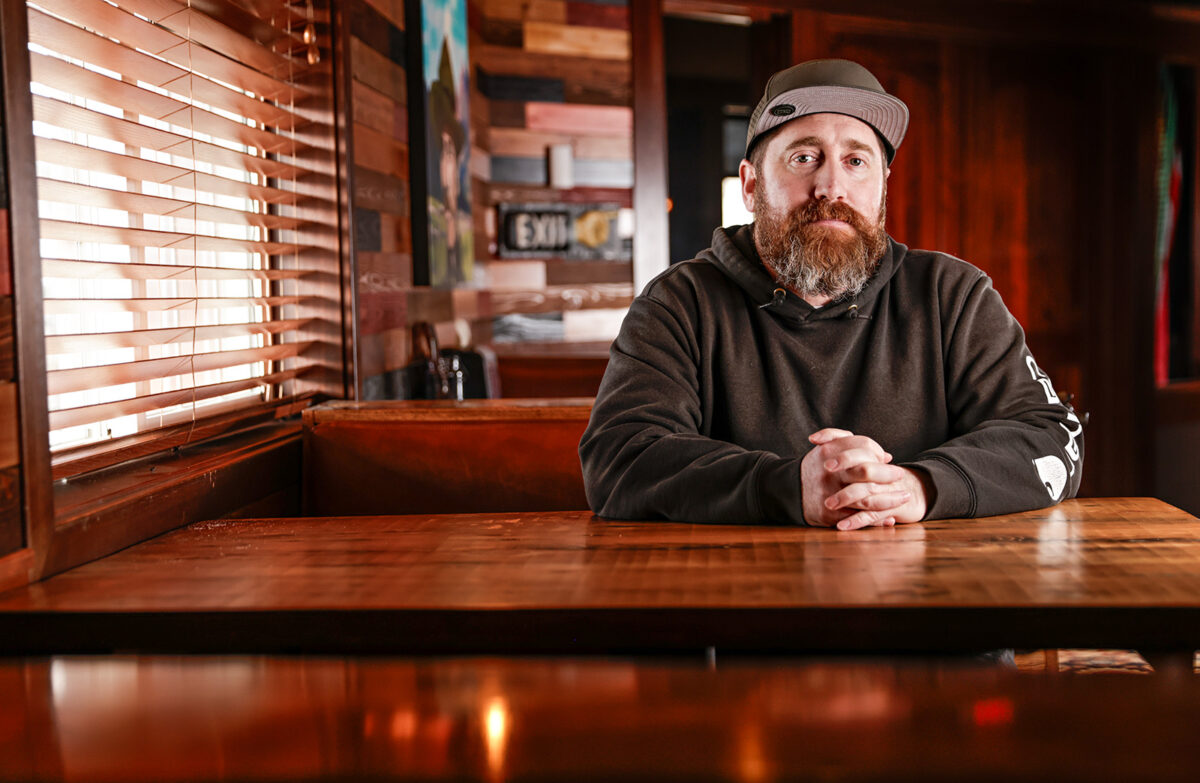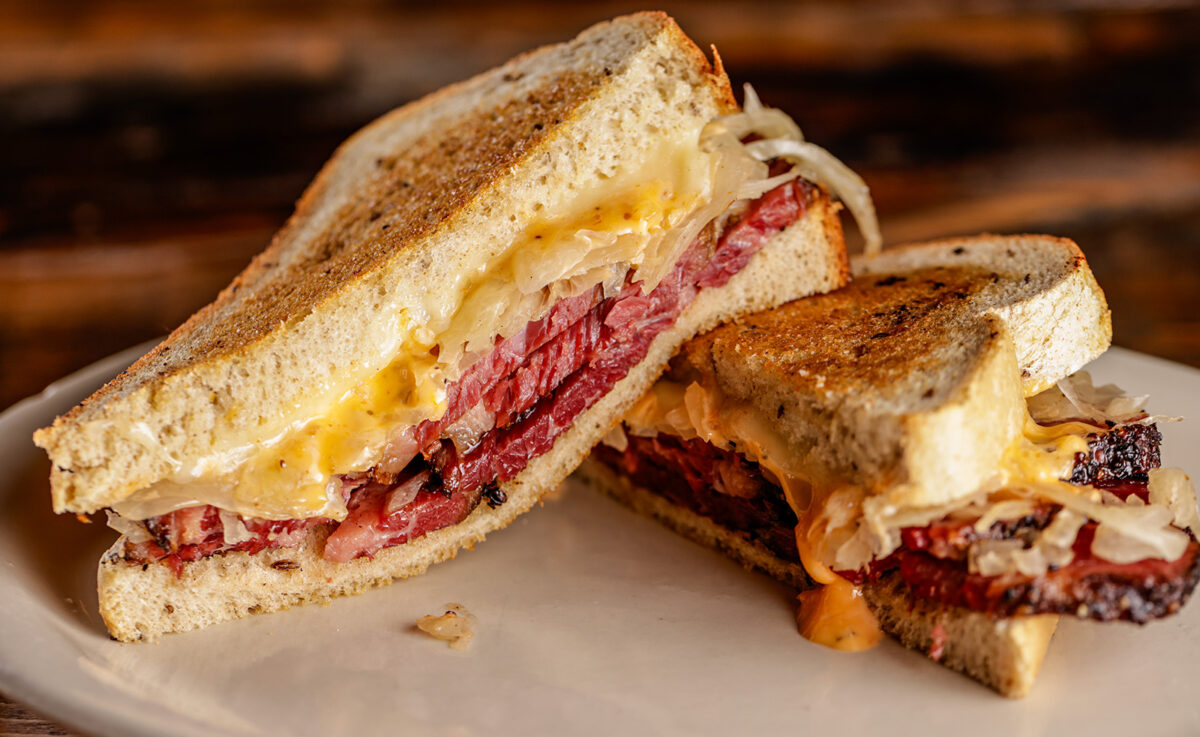
Jeremy Grossman doesn’t wear chef whites much these days. More often, the chef, who has an extensive history in the Flathead Valley restaurant business, can be found in jeans, a hoodie, and a hat.
His preferred work attire just might say something about the mindset he brings to the Flathead culinary scene. In conversations about food and the restaurant business, Grossman is blunt. His guiding principles for success are straightforward. His love of food is clearly influenced by a pragmatic streak. And he’s comfortable talking across a wide range of topics about the restaurant business, and the food that makes up its foundation.
Grossman is the executive chef for a number of restaurants owned by Flathead Valley restaurateur Pat Carloss, and his responsibilities include hiring, management, payroll, recipe design and menu construction. These days Grossman is the executive chef for Abruzzo Italian Kitchen, an Italian restaurant which is among the most popular places to dine in Whitefish, and Grossman also consults with the chef at the Gunsight Saloon in Columbia Falls. Grossman is also the executive chef for the Dusty Star Saloon, a South Kalispell bar and restaurant which opened in December 2022 inside the old Scotty’s Bar location off U.S. Highway 93.
Grossman first began working with Carloss about six years ago, when he was hired to be a sous chef at Tupelo Grille, a restaurant that Carloss owned up until he sold it in October of 2023. Within three months of joining on at Tupelo, he was hired to be the chef at Abruzzo, and within a year he was running all of Carloss’ Flathead Valley restaurants. In time that included the Mercantile Steakhouse, which Carloss sold last winter.
“He’s so incredibly humble. He really doesn’t have an ego. He’s as good as anybody I know,” Carloss said. “I couldn’t do it without him.”

But Grossman wasn’t always on a chef’s trajectory. Long before he arrived in Montana, he grew up on the West Coast and in the Pacific Northwest in a family that loved food. After he graduated from high school in the early 2000s, Grossman enlisted in the U.S. Army, where he served in a Ranger Battalion that deployed to Afghanistan. A parachuting injury eventually ended Grossman’s military career, and he decided to enroll in culinary school in Los Angeles.
Over the course of his career as a chef, Grossman has worked in a number of restaurants, including a two Michelin-starred restaurant, and alongside chefs that have both won and been nominated for the James Beard Award, including Mélisse in Los Angeles, Manzanita—a restaurant opened by celebrity chef Traci Des Jardins at the Ritz-Carlton in Lake Tahoe—and Rustic Canyon in Santa Monica, where he worked with Evan Funke, an American chef renowned for his mastery of pasta making.
On a recent overcast November afternoon, Grossman sat down with Flathead Living to talk food, business, and the work it takes to bring both those things together.
The conversation took place in the Dusty Star’s Dining room, and included a look, and a taste, of some of what the Dusty is offering on the menu. This winter the restaurant plans on rolling out a new dinner menu built around some comfort food staples, including a pasta dish, country-fried steak, and meatloaf, and there are discussions to continue branching out with the restaurant’s sandwich offerings.
Grossman is a fan in particular of the smoked chicken wings tossed in a version of the sweet house barbecue sauce that’s been boosted with a little more spice and salt to make it pair better with the wings. Before cooking, a traditional barbecue rub is applied to the wings, which are then smoked, and then finally deep fried before serving, for a satisfying crispiness that awaits beneath the glossy, tangy sauce that coats each wing and drum.
The Dusty serves up a serious rack of ribs, which arrive on the table still firm enough to hold their shape, but just barely clinging to the bone and are cut St. Louis-style, meaning the original rack is trimmed and cut to more uniformly dense and meaty dimensions. The work to make the ribs table-ready begins the night before, when the ribs are rubbed down with mustard rub and a blend of seasonings. The ribs then get thrown in a smoker for roughly six hours. Before they’re completely done smoking, the ribs are coated in a slurry mixture of apple cider, brown sugar and honey. That sweet, tangy, and slightly sticky mixture lends the ribs plenty of flavor on their own, but the Dusty also makes three varieties of barbecue sauce. There’s a house blend, which has more of straightforward sweet and savory flavor, a habanero peach barbecue sauce made with a pickled habanero puree, and a bourbon barbecue sauce made with Wild Turkey whiskey.
One of Grossman’s favorite things to eat at the Dusty is the “Smokehouse Reuben,” which is the restaurant’s take on a traditional Reuben sandwich, which comes stacked with thick-cut slices of pastrami that’s made in-house, and topped with sauerkraut, swiss and Thousand Island dressing, all of which rest in a layered, flavorful heap between two slices of rye bread.
Tender, juicy, and smokey, the pastrami is made with care and deliberation. Before it can star in any sandwich at the Dusty Star Saloon, the pastrami begins life as part of a beef brisket that gets brined for seven days. The brisket is then rubbed down in black pepper, and smoked for hours at a low temperature.

The following has been excerpted from a longer conversation, and edited for length and clarity.
FLATHEAD BEACON: You said you started cooking after you got out of the Army. Had you always been interested in food?
JEREMY GROSSMAN: “Yeah, always, man. My family, it’s all about where we’re going to eat. We crack jokes with each other, because my grandpa Sam, it’s always ‘What are we going to eat today, Sam?’ If I’m at home with my mom and my sister, we will plan our breakfast, lunch and dinner, early on, maybe a day ahead…So it’s always been a big, huge thing for my family.”
FB: When it comes to designing menus, figuring out what people want to eat, are there any principles you stick to?
JG: “You try to give a good product for a good price, as best you can nowadays, you know, obviously product is expensive now. You gotta make it. I don’t believe in just opening a box and selling something. And just trying to stay true to what you do. I wish there was a magic ball for what works and what doesn’t. There’s not. Sometimes things work, sometimes things don’t, but the average restaurant fails in the first year. Like 70% of them, or something like that. It’s a high number.”
FB: How important do you think flexibility is in this business?
JG: “It’s huge, man. You gotta be ready to roll with every punch. You gotta be ready for, it sounds like a cliché, but, the unexpected. You know, the curveballs. So-and-so doesn’t show up, so-and-so is sick. The order is late, you’re waiting for a delivery that’s not there until 5 or 6 p.m. at night and your prep team is gone and now you’re trying to put together a big order. There’s always something that can come up. It’s the circle of life, man. When you’re training managers to be managers, sometimes they can be frustrated with the little things. It’s like, you know, we can control what we can control, and the rest, you gotta have a plan.”

FB: What do you like to cook in your personal life?
JG: “Oh man, my personal life, honestly, I eat a lot of Asian food. I have a rice cooker on my counter. I make a lot of Japanese food at home. It’s easy, it’s healthy, it’s quick for my children, and they both play travel hockey. From here, it’s literally leaving to try and get a child to hockey.”
FB: If a home cook wanted to try making the kind of food you like at home, where should they start?
JG: “Honestly, just simple things. Stir fries. You know pad Thai, it’s a stir fry. All you need is some tamarind base from the Asian market. As long as you have your pantry stocked with fish sauce, a good soy sauce…I keep miso in my fridge just in case. If I have steaks I’ll throw miso butter on, or vegetables, a little miso. It’s great. It’s quick, it’s easy, and it’s healthy. As you get older, you kinda gotta pay more attention to that. You can’t eat steak every night. Like, I can, and sometimes I will, but you know, it’s not healthy.”
FB: Are you constantly looking for new recipes or new things to try, and if so, where do you look?
JG: “Nowadays, luckily, the internet is huge. And I’ll read books, lots of books. Back in the day when I used to work in a two-Michelin Star restaurant, if you went to that recipe book and you didn’t need something out of it, you’re going to get in trouble. You could write down what you need and walk away, and you’re good. Nowadays there’s so many great chefs out there you’re never going to make something new. Unless there’s a new ingredient, it’s been done before, and probably by somebody better than you. I tell people food is not the hard part of being a chef. It’s not. Anybody can make good food. It’s being able to run that business. Can you keep a staff? Can you make the same product you made for two people the same as you do for 50 or 100? That’s the challenge. Making one dish great is not difficult. If we were to sit down and have a five-person, seven-course meal, It’s not that difficult. Now, if that’s all you’re doing for your entire restaurant, that’s very difficult.”